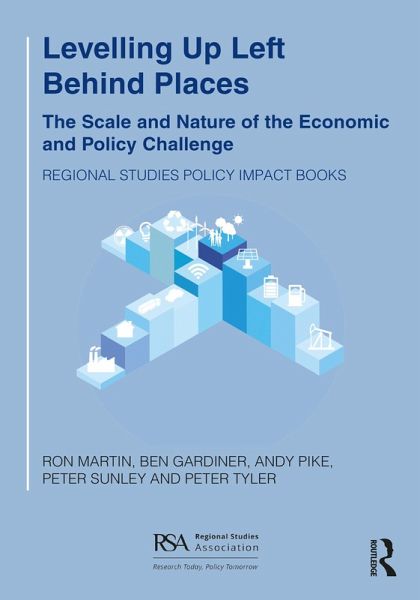
Levelling Up Left Behind Places (eBook, ePUB)
The Scale and Nature of the Economic and Policy Challenge
Versandkostenfrei!
Sofort per Download lieferbar
15,95 €
inkl. MwSt.
Weitere Ausgaben:

PAYBACK Punkte
8 °P sammeln!
This book aims to understand the predicaments of 'left behind places' and the scale of the policy challenge of 'levelling up' their economic prosperity. Drawing out lessons of wider international significance, it examines how places (cities, towns and localities) have grown apart over recent decades amidst deindustrialisation, post-industrial transition and the disruptive shocks of the global financial crisis and COVID-19 pandemic. Using the UK case to illustrate its arguments, the analysis identifies the different types of 'left behind places' and their distinctive economic experiences. The k...
This book aims to understand the predicaments of 'left behind places' and the scale of the policy challenge of 'levelling up' their economic prosperity. Drawing out lessons of wider international significance, it examines how places (cities, towns and localities) have grown apart over recent decades amidst deindustrialisation, post-industrial transition and the disruptive shocks of the global financial crisis and COVID-19 pandemic. Using the UK case to illustrate its arguments, the analysis identifies the different types of 'left behind places' and their distinctive economic experiences. The key features of urban and regional institutions and policies are reviewed to understand more about why, despite some successes, geographical inequalities remain an entrenched feature of the UK, blighting the life chances and quality of life of its citizens, and national economic progress as a whole. The weaknesses of past policies are highlighted, and the case is made for a new, mission-oriented policy model, because only a radical shift in economic thinking, governance and management is likely to achieve the 'levelling up' that is now a prominent refrain in the political lexicon.
Dieser Download kann aus rechtlichen Gründen nur mit Rechnungsadresse in A, B, BG, CY, CZ, D, DK, EW, E, FIN, F, GR, HR, H, IRL, I, LT, L, LR, M, NL, PL, P, R, S, SLO, SK ausgeliefert werden.



